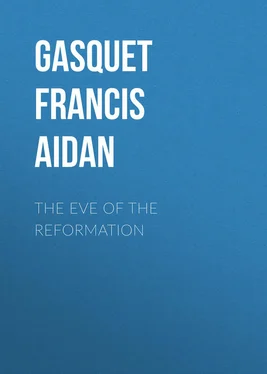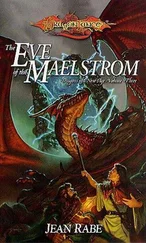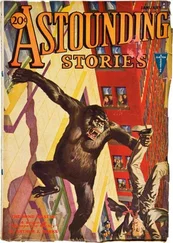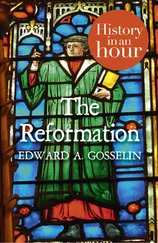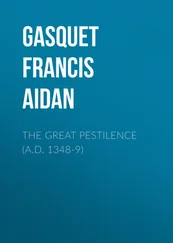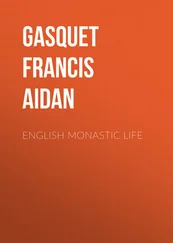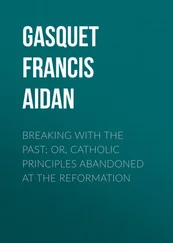Francis Gasquet - The Eve of the Reformation
Здесь есть возможность читать онлайн «Francis Gasquet - The Eve of the Reformation» — ознакомительный отрывок электронной книги совершенно бесплатно, а после прочтения отрывка купить полную версию. В некоторых случаях можно слушать аудио, скачать через торрент в формате fb2 и присутствует краткое содержание. Жанр: foreign_antique, foreign_prose, на английском языке. Описание произведения, (предисловие) а так же отзывы посетителей доступны на портале библиотеки ЛибКат.
- Название:The Eve of the Reformation
- Автор:
- Жанр:
- Год:неизвестен
- ISBN:нет данных
- Рейтинг книги:3 / 5. Голосов: 1
-
Избранное:Добавить в избранное
- Отзывы:
-
Ваша оценка:
- 60
- 1
- 2
- 3
- 4
- 5
The Eve of the Reformation: краткое содержание, описание и аннотация
Предлагаем к чтению аннотацию, описание, краткое содержание или предисловие (зависит от того, что написал сам автор книги «The Eve of the Reformation»). Если вы не нашли необходимую информацию о книге — напишите в комментариях, мы постараемся отыскать её.
The Eve of the Reformation — читать онлайн ознакомительный отрывок
Ниже представлен текст книги, разбитый по страницам. Система сохранения места последней прочитанной страницы, позволяет с удобством читать онлайн бесплатно книгу «The Eve of the Reformation», без необходимости каждый раз заново искать на чём Вы остановились. Поставьте закладку, и сможете в любой момент перейти на страницу, на которой закончили чтение.
Интервал:
Закладка:
In view of passages such as the above, and in the absence of any contemporary evidence of the use of the expression to denote the revival of letters, it is obvious that any judgment as to a general hostility of the clergy to learning based upon their admitted opposition to what was then called the “New Learning” cannot seriously be maintained. It would seem, moreover, that the religious position of many ecclesiastics and laymen has been completely misunderstood by the meaning now so commonly assigned to the expression. Men like Erasmus, Colet, and to a great extent, More himself, have been regarded, to say the least, as at heart very lukewarm adherents of the Church, precisely because of their strong advocacy of the movement known as the literary revival, which, identified by modern writers with the “New Learning,” was, it is wrongly assumed, condemned by orthodox churchmen. The Reformers are thus made the champions of learning; Catholics, the upholders of ignorance, and the hereditary and bitter foes of all intellectual improvement. No one, however, saw more clearly than did Erasmus that the rise of Lutheran opinions was destined to be the destruction of true learning, and that the atmosphere of controversy was not the most fitting to assure its growth. To Richard Pace he expressed his ardent wish that some kindly Deus ex machinâ would put an end to the whole Lutheran agitation, for it had most certainly brought upon the humanist movement unmerited hatred. 8 8 Opera (ed. Le Clerc), Ep. 583.
In subsequent letters he rejects the idea that the two, the Lutheran and the humanist movements, had anything whatever in common; asserting that even Luther himself had never claimed to found his revolt against the Church on the principles of scholarship and learning. To him, the storm of the Reformation appeared – so far as concerned the revival of learning – as a catastrophe. Had the tempest not risen, he had the best expectations of a general literary renaissance and of witnessing a revival of interest in Biblical and patristic studies among churchmen. It was the breath of bitter and endless controversy initiated in the Lutheran revolt and the consequent misunderstandings and enmities which withered his hopes. 9 9 Ibid., Ep. 751.
There remains, however, the broader question as to the real position of the ecclesiastical authorities generally, in regard to the revival of learning. So far as England is concerned, their attitude is hardly open to doubt in view of the positive testimony of Erasmus, which is further borne out by an examination of the material available for forming a judgment. This proves beyond all question, not only that the Church in England on the eve of the change did not refuse the light, but that, both in its origin and later development, the movement owed much to the initiative and encouragement of English churchmen.
It is not necessary here to enter very fully into the subject of the general revival of learning in Europe during the course of the fifteenth century. At the very beginning of that period what Gibbon calls “a new and perpetual flame” was enkindled in Italy. As in the thirteenth century, so then it was the study of the literature and culture of ancient Greece that re-enkindled the lamp of learning in the Western World. Few things, indeed, are more remarkable than the influence of Greek forms and models on the Western World. The very language seems as if destined by Providence to do for the Christian nations of Europe what in earlier ages it had done for pagan Rome. As Dr. Döllinger has pointed out, this is “a fact of immense importance, which even in these days it is worth while to weigh and place in its proper light,” since “the whole of modern civilisation and culture is derived from Greek sources. Intellectually we are the offspring of the union of the ancient Greek classics with Hellenised Judaism.” One thing is clear on the page of history: that the era of great intellectual activity synchronised with re-awakened interests in the Greek classics and Greek language in such a way that the study of Greek may conveniently be taken as representing a general revival of letters.
By the close of the fourteenth century, the ever-increasing impotence of the Imperial sway on the Bosphorus, and the ever-growing influence of the Turk, compelled the Greek emperors to look to Western Christians for help to arrest the power of the infidels, which, like a flood, threatened to overwhelm the Eastern empire. Three emperors in succession journeyed into the Western world to implore assistance in their dire necessity, and though their efforts failed to save Constantinople, the historian detects in these pilgrimages of Greeks to the Courts of Europe the providential influence which brought about the renaissance of letters. “The travels of the three emperors,” writes Gibbon, “were unavailing for their temporal, or perhaps their spiritual salvation, but they were productive of a beneficial consequence, the revival of the Greek learning in Italy, from whence it was propagated to the last nations of the West and North.”
What is true of Italy may well be true of other countries and places. The second of these pilgrim emperors, Manuel, the son and successor of Palæologus, crossed the Alps, and after a stay in Paris, came over the sea into England. In December 1400 he landed at Dover, and was, with a large retinue of Greeks, entertained at the monastery of Christchurch, Canterbury. It requires little stretch of imagination to suppose that the memory of such a visit would have lingered long in the cloister of Canterbury, and it is hardly perhaps by chance that it is here that half a century later are to be found the first serious indications of a revival of Greek studies. Moreover, it is evident that other Greek envoys followed in subsequent times, and even the great master and prodigy of learning, Manuel Chrysoloras himself, found his way to our shores, and it is hardly an assumption, in view of the position of Canterbury – on the high-road from Dover to London – to suppose to Christchurch also. 10 10 Remigio Sabbadini, La Scuola e gli studi di Guarino Guarini Veronese , pp. 217-18.
It was from his arrival in Italy, in 1396, that may be dated the first commencement of systematic study of the Greek classics in the West. The year 1408 is given for his visit to England. 11 11 R. Sabbadini, Guarino Veronese et il suo epistolario , p. 57.
There are indications early in the fifteenth century of a stirring of the waters in this country. Guarini, a pupil of Chrysoloras, became a teacher of fame at Ferrara, where he gathered round him a school of disciples which included several Englishmen. Such were Tiptoft, Earl of Worcester; 12 12 The Earl was a confrater and special friend of the monks of Christchurch, Canterbury. In 1468-69, Prior Goldstone wrote to the Earl, who had been abroad “on pilgrimage” for four years, to try and obtain for Canterbury the usual jubilee privileges of 1470. In his Obit in the Canterbury Necrology (MS. Arund. 68 f. 45d) he is described as “vir undecumque doctissimus, omnium liberalium artium divinarumque simul ac secularium litterarum scientia peritissimus.”
Robert Fleming, a learned ecclesiastic; John Free, John Gundthorpe, and William Gray, Bishop of Ely; whilst another Italian, Aretino, attracted by his fame another celebrated Englishman, Humphrey, Duke of Gloucester, to his classes. These, however, were individual cases, and their studies, and even the books they brought back, led to little in the way of systematic work in England at the old classical models. The fall of Constantinople in 1453 gave the required stimulus here, as in Italy. Among the fugitives were many Greek scholars of eminence, such as Chalcocondylas, Andronicus, Constantine and John Lascaris, who quickly made the schools of Italy famous by their teaching. Very soon the fame of the new masters spread to other countries, and students from all parts of the Western World found their way to their lecture-halls in Rome and the other teaching centres established in the chief cities of Northern Italy.
Интервал:
Закладка:
Похожие книги на «The Eve of the Reformation»
Представляем Вашему вниманию похожие книги на «The Eve of the Reformation» списком для выбора. Мы отобрали схожую по названию и смыслу литературу в надежде предоставить читателям больше вариантов отыскать новые, интересные, ещё непрочитанные произведения.
Обсуждение, отзывы о книге «The Eve of the Reformation» и просто собственные мнения читателей. Оставьте ваши комментарии, напишите, что Вы думаете о произведении, его смысле или главных героях. Укажите что конкретно понравилось, а что нет, и почему Вы так считаете.
